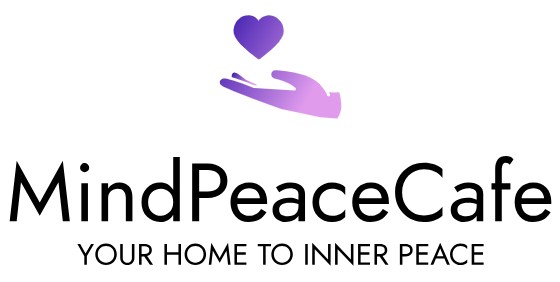Enhancing Leadership: The Meditative Approach at Keppel Corporation

As organizations navigate the complexities of the modern business landscape, the role of leadership and its development has become increasingly crucial. Keppel Corporation, a prominent player in the corporate world, has taken a progressive approach towards leadership development, emphasizing the integration of meditation and mindfulness through the Calm app. In an era defined by rapid shifts and an evolving workforce, the company champions the use of meditation as a strategic tool in shaping effective leadership. This article delves into Keppel Corporation’s innovative approach to leadership development, examining the intersection of meditation, sustainable solutions, and the cultivation of effective leaders within the organization. Through this exploration, we seek to understand the implications of integrating meditation in leadership development and its potential impact on modern corporate cultures.
1. Introduction to Keppel Corporation
Keppel Corporation, a diversified conglomerate, has recently undergone significant changes, reflecting its adaptability to the evolving business landscape. With a history spanning over a century, the corporation has consistently adapted to various global shifts, positioning itself as a leader in multiple industries. Embracing the urgency of sustainability, Keppel has demonstrated a strong commitment to environmentally responsible practices, aligning its strategies with the pressing need for eco-friendly solutions. The corporation’s recent changes not only showcase its resilience but also signal a focused approach towards integrating sustainable solutions in its operations.
Keppel Corporation’s commitment to sustainability is evident through its steadfast efforts in renewable energy, sustainable urbanization, and environmentally friendly infrastructure. By emphasizing sustainability, the corporation aims to enrich communities while reducing its ecological footprint. Through strategic partnerships and innovative initiatives, Keppel continues to drive sustainability, recognizing that responsible corporate practices contribute to long-term value creation and societal advancement. This commitment aligns with its broader vision to be a global company at the forefront of shaping the future with sustainable urbanization, energy, and connectivity.
As Keppel Corporation continues to evolve, sustainability remains at the core of its operations, reflecting a belief that responsible business practices are key to long-term success. From renewable energy projects to sustainable technology advancements, the corporation’s recent changes underscore a strategic pivot towards aligning commercial goals with environmental preservation, setting the stage for a future where sustainability and profitability go hand in hand.
Corporate Update
Keppel Corporation’s recent name change signifies a strategic shift in the company’s identity and focus, reflecting its proactive stance towards embracing sustainable solutions. The corporation, now known as Keppel Limited, has redefined its corporate narrative, emphasizing a renewed commitment to sustainable practices and responsible business conduct. This announcement underscores the corporation’s recognition of global imperatives, aligning its brand with a forward-looking, eco-conscious ethos.
The name change also reflects Keppel’s evolution beyond traditional corporate paradigms, signaling a deliberate move towards integrating sustainability into its core strategies. By leveraging its extensive expertise and resources, Keppel Limited aims to drive impactful change in the global business landscape, setting new benchmarks for environmental stewardship and corporate responsibility. This transformative step not only repositions the corporation but also symbolizes its proactive response to the urgent demands of a changing world.
In line with its new identity, Keppel Limited diligently pursues sustainable solutions across its diverse portfolio, fostering innovation and long-term value creation. The company’s strategic refocus underscores its commitment to contributing meaningfully to global sustainability efforts, thus playing a pivotal role in shaping the future of responsible corporate conduct and environmental conservation.
2. The Importance of Leadership Development

Leadership development stands as a cornerstone in modern corporate culture, recognized for its pivotal role in shaping organizational success and fostering a dynamic, resilient workforce. In today’s rapidly evolving business environment, the significance of nurturing effective leaders cannot be overstated. Forward-thinking companies acknowledge that investing in leadership development goes beyond individual growth; it serves as a strategic imperative, driving innovation, fostering employee engagement, and fortifying organizational resilience.
The modern landscape demands leaders equipped with diverse skill sets, adaptive strategies, and a keen understanding of global dynamics. Leadership development initiatives not only address current challenges but also prepare organizations for the uncertainties of the future. By nurturing leadership capabilities, companies can navigate complexities, inspire collaboration, and empower teams to thrive amidst diverse market conditions and industry disruptions. Additionally, leadership development initiatives often contribute to a robust organizational culture, fostering inclusivity and continuous learning while shaping a cohesive vision that transcends hierarchies.
As digital transformation, globalization, and societal shifts redefine the corporate sphere, leadership development assumes multifaceted significance. It becomes a conduit for instilling ethical governance, promoting diversity, and driving sustainable practices, thereby aligning business goals with broader societal needs. By recognizing the importance of leadership development, organizations signal their commitment to holistic growth, innovation, and long-term endurance.
Leadership Strategies
Leadership strategies encompass a spectrum of approaches aimed at cultivating and refining leadership competencies within organizations. These strategies extend beyond traditional hierarchical structures, emphasizing adaptable, collaborative, and inclusive leadership models. Modern organizations recognize the need for versatile leaders who can navigate complex challenges, inspire innovation, and foster a culture of continuous improvement. As such, leadership strategies often focus on harnessing emotional intelligence, fostering transparent communication, and promoting a growth mindset among leaders and teams.
Moreover, strategic leadership development involves creating frameworks for mentorship, coaching, and skill-building programs that address the diverse needs and aspirations of emerging and established leaders. Organizations leverage these strategies to empower leaders to make informed decisions, cultivate diverse talent, and foster an environment that encourages calculated risk-taking and creativity. Additionally, effective leadership strategies emphasize the integration of sustainability, ethical decision-making, and social responsibility at all levels, aligning with the evolving expectations of stakeholders and society.
The adoption of digital technologies and evolving workplace dynamics have prompted a reevaluation of leadership strategies, prompting a shift towards fostering agile, resilient, and emotionally intelligent leadership. As interests in inclusive leadership and diverse representation grow, leadership strategies also increasingly emphasize the promotion of equitable opportunities, diversity, and the amplification of underrepresented voices within organizational leadership structures.
Sustainable Solutions
In modern organizations, the integration of sustainable solutions aligns closely with leadership development, reflecting a strategic synergy that drives holistic growth and societal impact. Sustainable solutions encompass a spectrum of environmentally responsible practices, ethical governance, and social initiatives. Within this framework, leadership development assumes a pivotal role as it fosters a mindset of long-term thinking, innovation, and responsibility. Effective leadership equips organizations to lead by example, driving sustainable practices not only within their operations but also across their sphere of influence.
Leadership development initiatives often emphasize the importance of sustainability, imparting the skills and mindset necessary to navigate complex ecological challenges, advocate for responsible business conduct, and inspire sustainable innovation. Furthermore, sustainable solutions, when integrated with leadership development, encourage leaders to consider the environmental and social implications of their decisions, fostering a culture of accountability and mindfulness within organizations.
The link between sustainable solutions and leadership development also underscores the evolving expectations of stakeholders and society. Modern leaders are expected to champion sustainable strategies, transparency, and ethical conduct, placing greater emphasis on environmental stewardship and societal impact. As organizations recognize the interdependence of leadership and sustainability, efforts to integrate these principles become instrumental in shaping a future where responsible business practices drive positive change and enduring value.
3. Meditation and Leadership
The correlation between meditation and effective leadership has increasingly garnered attention within the corporate sphere, reflecting a growing recognition of the impact of mindfulness on leadership qualities. Meditation, often associated with promoting mental clarity, emotional regulation, and resilience, offers leaders the tools to navigate complexities with composure and insight. By integrating mindfulness practices, leaders can cultivate a heightened ability to empathize, communicate effectively, and make well-considered decisions, thereby fostering a more cohesive and empowered workforce.
Exploring the link between meditation and leadership further reveals the transformative potential of contemplative practices in enhancing self-awareness and emotional intelligence. Leaders who engage in regular meditation often exhibit a capacity to manage stress, demonstrate empathy, and nurture inclusive environments within their teams. This correlation underscores the profound effect of mindfulness on fostering adaptive, conscientious, and ethically driven leadership, essential qualities in navigating the intricacies of modern organizational challenges.
Moreover, the exploration of meditation and its influence on effective leadership underscores a broader cultural shift within organizations. The embrace of mindfulness initiatives signals an acknowledgment of the importance of mental well-being, resilience, and holistic personal development, factors crucial in cultivating a vibrant leadership culture capable of steering organizations through dynamic and unpredictable landscapes.
Mental Well-being
The impact of meditation on mental well-being is increasingly recognized as a critical component of fostering resilient, empathetic, and effective leaders. Mindfulness practices, including meditation, play a significant role in enhancing mental well-being by offering individuals a platform to cultivate self-awareness, manage stress, and build emotional resilience. The application of meditation techniques has demonstrated the ability to alleviate anxiety, enhance cognitive function, and promote overall mental clarity, attributes that are fundamental in the context of leadership development.
In the relationship between meditation and leadership, mental well-being assumes a central position. Leaders who engage in mindfulness practices often exhibit heightened emotional intelligence, reduced reactivity, and enhanced decision-making abilities, enabling them to navigate challenging situations with composure and empathy. Furthermore, the cultivation of mental well-being through meditation serves as a foundation for fostering inclusive, supportive work environments, ultimately contributing to a more engaged and harmonious organizational culture.
The correlation between meditation and mental well-being also reflects a broader trend in modern organizational paradigms—a focus on prioritizing holistic well-being within leadership structures. As leaders recognize the intertwined nature of mental well-being, personal growth, and professional efficacy, the integration of mindfulness practices becomes instrumental in shaping healthy, balanced, and forward-thinking leadership cultures.
4. Calm App and Meditation at Keppel
Keppel Corporation has strategically integrated meditation practices utilizing the Calm app as a pivotal component of its leadership development initiatives. Through the incorporation of the Calm app, Keppel empowers its leaders and employees to access guided meditation sessions, stress-relief exercises, and tools for enhancing mental well-being. By providing access to the Calm app, Keppel Corporation underscores its commitment to fostering a culture of wellness, mindfulness, and resilience, recognizing the significance of mental well-being in driving effective leadership. This strategic incorporation reflects a forward-thinking approach to leadership development, enriching the organizational landscape with tools aimed at enhancing personal and professional growth.
The utilization of the Calm app further aligns with Keppel Corporation’s dedication to sustainability, innovation, and holistic development. By incorporating meditation practices, the organization acknowledges the interplay between mental well-being and effective leadership, fostering an environment that prioritizes emotional intelligence, adaptability, and stress management. Additionally, the accessibility and utilization of the Calm app within Keppel Corporation signal a commitment to providing resources that nurture a balanced, engaged, and resilient workforce, essential elements within a dynamic and evolving corporate environment.
The incorporation of the Calm app within Keppel not only signifies the organization’s recognition of the importance of mental well-being but also exemplifies its proactive dedication to providing comprehensive support for leadership development, embodying the ethos of a progressive, supportive, and forward-looking workplace culture.
Implementing Meditation Programs
Keppel Corporation has tactfully implemented meditation programs as a substantive component of its organizational landscape, emphasizing the intrinsic importance of mental well-being and personal growth. By integrating meditation programs, the organization signals a commitment to fostering a supportive, mindful, and growth-oriented environment for its employees and leadership cadre. The implementation of these initiatives denotes a purposeful effort in aligning organizational culture with holistic well-being, acknowledging the significance of mental wellness in shaping resilient, adaptable, and empathetic leaders.
The execution of meditation programs at Keppel Corporation reflects a progressive, comprehensive approach to leadership development, recognizing the transformative impact of mindfulness on personal and professional efficacy. These programs offer employees and leaders access to resources, training, and support aimed at cultivating mindfulness, stress management, and emotional intelligence. The deliberate implementation underscores the organization’s dedication to providing avenues for personal development, self-care, and mental fortitude, essential attributes in navigating the demands of a dynamic corporate landscape.
Furthermore, the implementation of meditation programs also aligns with the organization’s broader commitment to sustainability, innovation, and progressive human resource practices. By fostering a culture that values mental well-being, Keppel Corporation stands at the forefront of organizations dedicated to creating inclusive, supportive work environments that champion personal growth, resilience, and holistic wellness within the professional sphere.
5. Benefits of Meditation in Leadership Development
Meditation plays a pivotal role in shaping effective leaders, offering a range of positive impacts that contribute to the overall development of individuals in leadership roles. By integrating meditation into leadership development, organizations can foster a spectrum of qualities essential for navigating complex challenges, inspiring innovation, and cultivating a resilient, cohesive workforce. Through regular meditation, leaders can enhance their emotional intelligence, which is integral to effective decision-making, conflict resolution, and team collaboration.
Stress Management
Meditation plays a significant role in stress management and its effect on leadership within organizational settings. Its practice offers leaders a vital tool to navigate the complexities and demands of the modern workplace. As stress often pervades professional environments, effective stress management is crucial for maintaining optimal performance, decision-making, and overall well-being. Through meditation, leaders can cultivate a heightened ability to cope with stress, fostering a more composed, resilient approach to addressing challenges and leading their teams.
How can meditation benefit leadership development?
Meditation can benefit leadership development by enhancing qualities such as emotional intelligence, stress management, and resilience. Regular meditation fosters self-awareness, better decision-making, and the ability to navigate complex challenges with composure and empathy, essential for effective leadership.
What is the impact of meditation on workplace culture?
Meditation can have a positive impact on workplace culture by promoting a supportive, inclusive environment. It can help reduce stress, improve emotional regulation, and foster collaborative relationships, ultimately contributing to a more harmonious and engaged workforce.
How can leaders encourage mindfulness in their teams?
Leaders can encourage mindfulness in their teams by modeling mindful behavior, providing resources for meditation or mindfulness training, and creating an environment where well-being and self-care are prioritized. Communicating the benefits of mindfulness and leading by example can inspire teams to embrace these practices.




